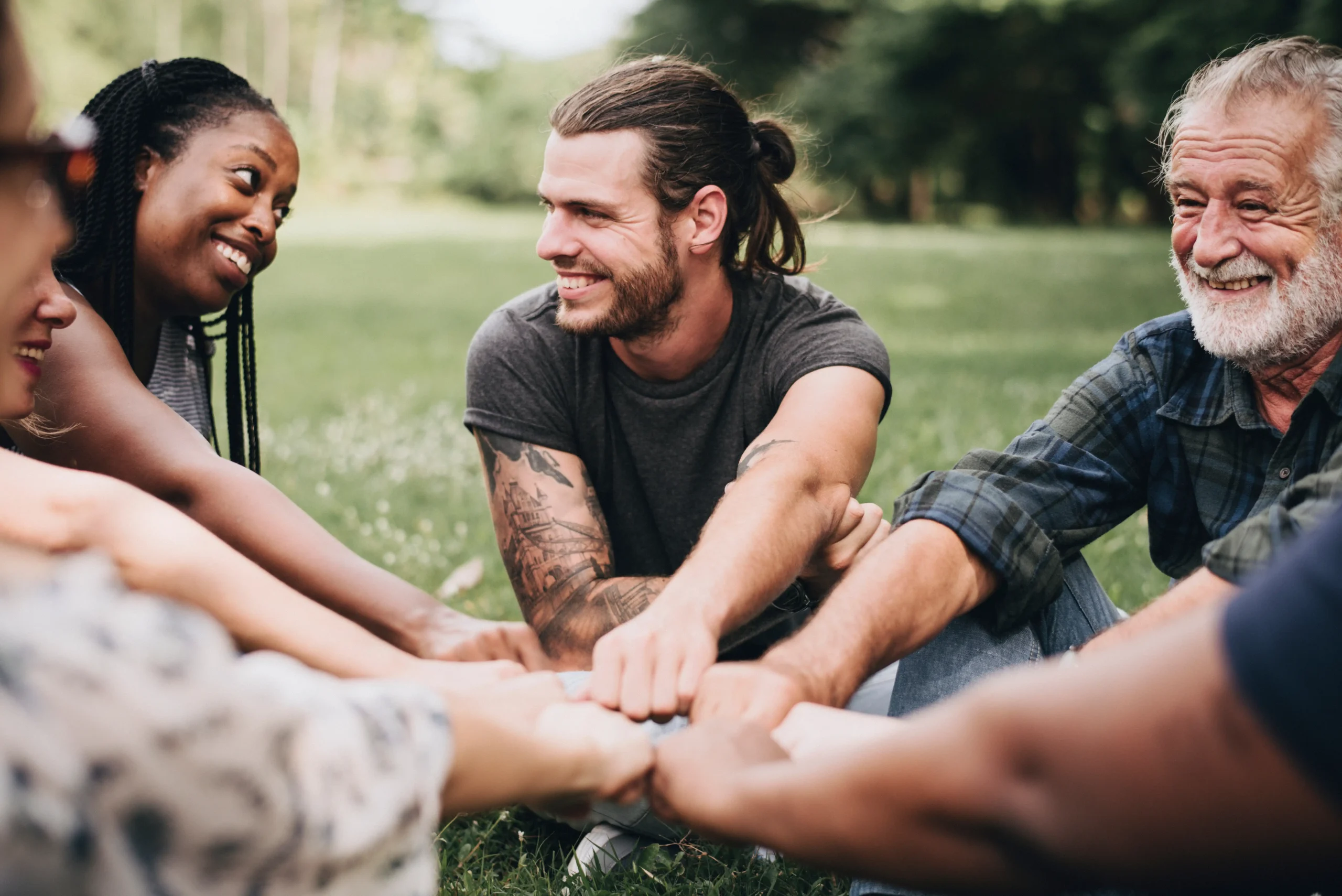Our Addiction & Mental Health Treatment Services
At Cornerstone Healing Center, we provide addiction treatment services designed to meet your unique needs.


Check My Treatment Coverage

We Treat the Whole Person
We help you reach your highest level of physical, mental, and emotional well-being. Our addiction treatment services provide you with a range of evidence-backed programs by addressing your mental health, lifestyle, nutrition, and exercise.
Our team of experienced professionals will work together to identify areas needing healing and provide guidance and support as our clients move through their program.
We also provide various services, including yoga classes, workshops on mindful eating, and individual sessions with certified counselors.
Our Evidence-Based and Holistic Approach

Cognitive Behavioral Therapy
Cognitive Behavioral Therapy (CBT) is a core part of our addiction treatment services. This therapy helps clients recognize and change negative thought patterns that often lead to substance use. Clients learn healthier ways to handle stress and manage life’s challenges without turning to drugs or alcohol. CBT works hand-in-hand with group therapy and 12-step programs to create a well-rounded recovery plan. For many, it becomes the foundation for building a healthier, more fulfilling life.

Dialectical Behavioral Therapy
Dialectical Behavioral Therapy (DBT) teaches skills to help manage intense emotions, build better relationships, and handle stress. This approach is especially helpful for clients facing addiction and co-occurring mental health challenges. Through DBT, clients learn mindfulness, emotional regulation, and ways to navigate difficult situations without harmful behaviors. We integrate DBT into our personalized recovery plans to ensure well-rounded care. These skills give clients the tools they need to stay grounded and focused on recovery.

EMDR
Eye Movement Desensitization and Reprocessing (EMDR) is a therapy designed to help clients process and heal from trauma. By addressing unresolved traumatic experiences, EMDR reduces their emotional impact, making it easier to move forward. This therapy is particularly beneficial for clients whose addiction stems from past trauma. EMDR enhances our holistic healing approach by providing powerful benefits through both individual and group therapy sessions. It’s a powerful tool for breaking free from the cycle of pain and addiction.

Individual Therapy
Individual therapy provides a safe and private space for clients to explore the root causes of addiction. Working one-on-one with a therapist, clients identify triggers, develop coping skills, and create strategies to avoid relapse. This personalized support helps build self-awareness and resilience throughout recovery. Therapists also offer guidance and encouragement, helping clients track progress and make meaningful changes. Individual therapy plays an important role in building a solid path toward lasting recovery.

Nutritional Therapy
Good nutrition plays an essential role in physical and emotional recovery from addiction. Nutritional therapy helps our clients learn how balanced meals can boost energy, improve mood, and support overall well-being. Our program includes guidance on meal planning and creating long-term healthy eating habits. This therapy works alongside other wellness programs like fitness, meditation, and 12-step meetings to support a thriving, sober lifestyle. Proper nutrition helps clients feel stronger and more prepared for their recovery journey.

Outpatient Programs
Cornerstone offers outpatient programs that provide expert care while allowing clients to maintain their daily responsibilities. These programs are flexible, with options for 3-day, 4-day, or 5-day schedules tailored to individual recovery needs. Outpatient care includes therapy, group sessions, and holistic treatments like yoga, meditation therapy, and nutritional therapy. This setup ensures clients receive the tools and support they need while balancing work, family, or school. It’s a practical solution for those seeking recovery in a supportive, structured environment.
Outpatient
Intensive Outpatient
Reach out
Get assessed
Start thriving
Reach out
Get assessed
Start healing
Our Simple Process to Get Started
Holistic & Life Skill Programs
Yoga
Yoga is an important part of our recovery program, offering you a way to reduce stress, find balance, and build emotional strength.
Meditation
Our meditation therapy focuses on mindfulness, teaching clients to manage emotions and reduce stress. By focusing on being present without judgment.
Resistance Training
Resistance training is an important part of recovery, helping you improve their physical health while building confidence and relieving stress.
12-Steps Community
The 12-Step community provides a healing framework and supportive space for you to connect with others on your recovery journey.
Meet Our Treatment Team
Meet our experienced masters-level treatment professionals passionately dedicated to providing compassionate, expert care in our state-of-the-art rehabilitation facilities and recovery centers.
Clinical Director of Scottsdale Program
Eboni Fields, MS LPC
Eboni Fields, MS LPC, is a seasoned Clinical Director who brings over a decade of experience in behavioral health and substance abuse. She is a licensed professional counselor with a Masters in Mental Health Counseling from Grand Canyon University.
More About EboniClinical Director of Phoenix Program
Nate Bush, LCSW
Nate began his recovery journey in 2010 and earned a Master's in Social Work from ASU. He’s been in the Behavioral Health field since 2013. Specializing in CBT, DBT, and grief, Nate is now the Clinical Director of our Phoenix program, underlined by his passion for helping others who struggled with substance abuse issues as he did.
More About NateDo holistic treatments for addiction really work?
Holistic treatments can be highly effective when combined with traditional therapies. Approaches like yoga, meditation therapy, resistance training, and nutritional therapy address the physical, emotional, and mental aspects of recovery and create a well-rounded plan. These treatments complement evidence-based methods, helping clients achieve long-term sobriety and overall well-being.
Does my insurance cover all of these addiction treatment programs?
Insurance usually covers the majority of addiction treatment services, but coverage varies by provider. We’re here to help. We offer commitment-free insurance verification to make sure you understand your benefits and get access to the care you need.
Other than a 12-Step Community, what aftercare do you provide?
We provide aftercare services like individual therapy, group counseling, and life skills training to help you maintain sobriety and build a healthy future. These programs offer ongoing support to keep you on track long after treatment.
Let's begin the journey together
Frequently Asked Questions
Get Started Now
Call and speak with one of our caring team members about help for you or a loved one.

